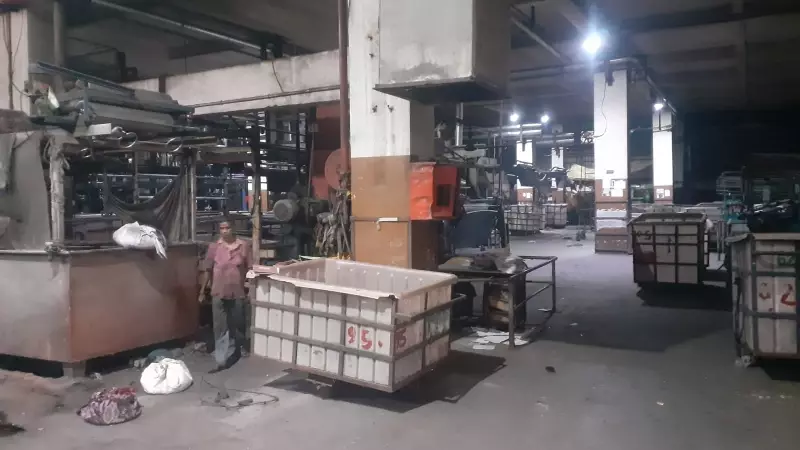
Surat's renowned textile industry is facing a severe crisis as mills grapple with an acute labor shortage just when market demand peaks during the ongoing wedding season. The situation has reached critical levels with industry sources reporting approximately 30% workforce deficit across dyeing and printing units.
Election Exodus Creates Workforce Vacuum
The labor crisis stems from the massive exodus of workers who returned to their home states of Bihar, Uttar Pradesh, Madhya Pradesh, Jharkhand, and Odisha during the recent festive period and Bihar elections. Industry owners reveal that special trains were arranged to transport workers home for Diwali, Chhath Puja, and election-related activities, but the return journey has become a logistical nightmare.
According to mill owners and contractors, workers are struggling to secure return train tickets, leaving hundreds stranded in their native places. The timing couldn't be worse for the textile hub, which typically sees surge in demand during the wedding season when orders for finished fabrics multiply.
Industry Forced to Adopt Costly Alternatives
Faced with production delays and potential business losses, textile mill owners are resorting to expensive measures to bring workers back. Many are paying labor contractors to arrange private luxury buses or pre-booked railway tickets for stranded employees.
A dyeing and printing mill owner from Sachin, who preferred anonymity, expressed frustration: "We have paid contractors to bring laborers from UP and Bihar through any available means. The extended holiday period this year has severely impacted our operations, causing us to miss delivery deadlines and lose valuable business."
The situation is particularly dire for Surat's approximately 400 dyeing and printing mills, primarily located in Pandesara, Sachin, Kadodara, and Palsana areas. These units typically rely heavily on migrant workers, with over 60% of the workforce coming from Bihar and another 30% from Uttar Pradesh and other states.
Existing Workforce Pushed to Limits
The labor shortage has forced remaining workers to take on extended shifts, with some working up to 36 hours continuously. Ramesh Patel, a labor contractor from Jaunpur, UP, who manages workers for seven printing machines in Sachin, explained: "When relievers don't arrive, workers must complete night shifts and continue through the next day's 12-hour shift. We're constantly coordinating with workers in UP and Bihar, sending them booked tickets and arranging their return."
Jitu Vakhariya, President of the Southern Gujarat Textile Processors Association, confirmed the severity of the situation: "There's a shortage of more than 30% workers in the mills. Printing machines that normally require eight to ten workers are being operated by just four to six. We've had to increase salaries and pay higher wages for overtime to manage the crisis."
Vakhariya added that only 60% of dyeing and printing mills have resumed operations after the Diwali break, with production capacity severely compromised. The association remains hopeful that normal operations will resume after November 25, as workers gradually return following the conclusion of Bihar elections.
The industry now faces the additional pressure of incoming orders for upcoming festivals including Pongal and Eid, which could further strain the already stretched production capabilities of Surat's textile mills.





